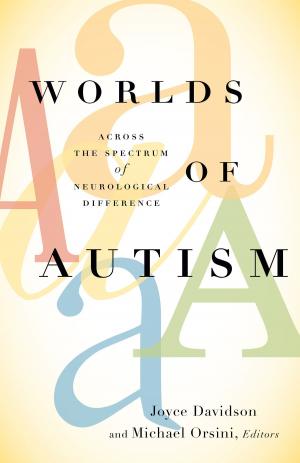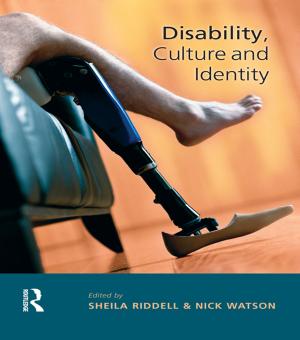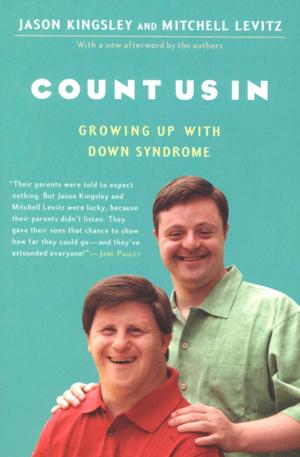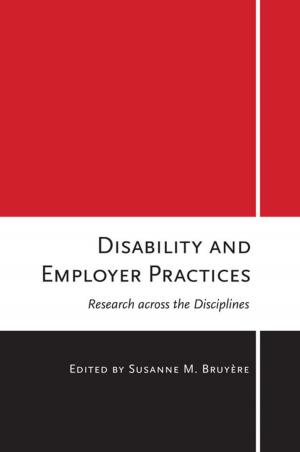| Author: | Graeme McCreath | ISBN: | 9781465770929 |
| Publisher: | Graeme McCreath | Publication: | February 21, 2012 |
| Imprint: | Smashwords Edition | Language: | English |
| Author: | Graeme McCreath |
| ISBN: | 9781465770929 |
| Publisher: | Graeme McCreath |
| Publication: | February 21, 2012 |
| Imprint: | Smashwords Edition |
| Language: | English |
As a blind person I have written this book to help bring all blind Canadians into the twenty-first century as full participating citizens. My recommendations can change our status from second-class charity recipients to full contributing members of society.
This book provides a comprehensive examination of the general experiences of blind people; the founding of the predominant charity, the Canadian National Institute for the Blind; the human rights aspect of being classed as charity dependents; a detailed analysis of key studies; several descriptions of blind Canadians’ experiences; blind people in the work place and finally a full outline of how to solve the plight that blind people find themselves.
The 3 main goals are:
1. Remove the charity status of blind Canadians and let us become independent autonomous participating individuals.
2. Provide resources directly to individuals giving us opportunity for choice and self-determination as well as the introduction of publically funded training centres in all aspects of blindness replacing the custodial approach. Centres across Canada should be readily available to train and prepare the working age to cope in the job market.
3. To reverse the shocking unemployment figures and put blind people to work. All my life I have been one of the minority of working blind people and have been plagued by persistently defending blind people’s abilities and constantly trying to change the misconception that we are incapable. In 2005 a national study pegged unemployment of blind Canadians at 75 per cent, mirroring a similar study 40 years ago. Recently this shocking statistic appears to be deteriorating even more. It is essential to introduce employment incentive programs to assist potential blind workers and employers, particularly in the private sector.
All citizens must be given the right to succeed and at present blind people are hindered by social barriers rather than physical ones. Failure should be replaced by success and all levels of government need to take responsibility to ensure all members of society have the opportunity to succeed.
Graeme McCreath.
As a blind person I have written this book to help bring all blind Canadians into the twenty-first century as full participating citizens. My recommendations can change our status from second-class charity recipients to full contributing members of society.
This book provides a comprehensive examination of the general experiences of blind people; the founding of the predominant charity, the Canadian National Institute for the Blind; the human rights aspect of being classed as charity dependents; a detailed analysis of key studies; several descriptions of blind Canadians’ experiences; blind people in the work place and finally a full outline of how to solve the plight that blind people find themselves.
The 3 main goals are:
1. Remove the charity status of blind Canadians and let us become independent autonomous participating individuals.
2. Provide resources directly to individuals giving us opportunity for choice and self-determination as well as the introduction of publically funded training centres in all aspects of blindness replacing the custodial approach. Centres across Canada should be readily available to train and prepare the working age to cope in the job market.
3. To reverse the shocking unemployment figures and put blind people to work. All my life I have been one of the minority of working blind people and have been plagued by persistently defending blind people’s abilities and constantly trying to change the misconception that we are incapable. In 2005 a national study pegged unemployment of blind Canadians at 75 per cent, mirroring a similar study 40 years ago. Recently this shocking statistic appears to be deteriorating even more. It is essential to introduce employment incentive programs to assist potential blind workers and employers, particularly in the private sector.
All citizens must be given the right to succeed and at present blind people are hindered by social barriers rather than physical ones. Failure should be replaced by success and all levels of government need to take responsibility to ensure all members of society have the opportunity to succeed.
Graeme McCreath.















